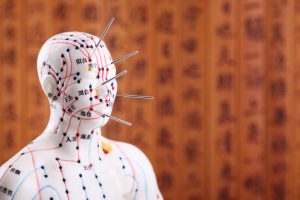A version of this was first published in Front Porch at http://frontporchfredericksburg.com
Any gardener worth his or her salt knows the best way to grow disease free, healthy plants is to give them the right conditions. Good soil, lots of nutrients, water, light. Maybe even a little love?

How Does YOUR Garden Grow?
But this concept seems alien to much of the medical profession. We allopathic doctors are inclined to put massive effort into identifying, and then treating (with potentially toxic medicines or heroic surgery), illnesses once they occur.
But we don’t think like a gardeners. Are not so good at understanding the role of diet, and avoiding or dealing with the stresses, toxins and environmental imbalance that contribute to sickness. Not so good at paying attention to the “soil.”
This allopathic* focus on “diagnose and treat”, rather than “predict and prevent”, is a reflection of the whole culture and what doctors are – or are not – taught at medical school.
Sometimes strait down the line allopathic medicine doesn’t have the answer. Nor, as I say, is it good at paying attention to all the factors that are contributing to your being sick.
Then it may be time to try something complimentary or alternative.
CAM and Confusion of Terminology
There is not a little confusion about the terminology.
“Integrative”, or “complimentary”, means in addition to conventional treatment.
Our local hospital has an Integrative Medicine Program where members of the local Holistic Healers Organization, known as H2O, provide treatments, like healing touch, massage, Reiki, life coaching and nutrition counseling to cancer patients, notes H2O founding member and acting president Donna Hetrick – but who is frustrated by the hesitant acceptance by the doctors toward the integrative therapists. “It’s a slow moving train” she says.
“Alternative” means instead of, but which may not be adequate if someone is seriously ill notes Jason Sneed DO, a local Osteopathic doctor. He is a member of H2O, and is both an allopathic doctor and practices integrative medicine.
“Holistic” incorporates both and means therapies that consider body, mind and spirit. But CAM, standing for complimentary and alternative, is a good shorthand for all of these.
CAM treatments can be classified in to different modalities:
- Biological (supplements, remedies, special diets etc.).
- Energy-based (manipulated with needles, magnets, lights, sound)
- Movement based (manipulation, yoga, massage etc.)
- Mind-body (meditation, biofeedback etc.).
Many incorporate a mixture of more than one.
A great resource for information for CAM therapies is the National Center for Complimentary and Integrative Health (https://nccih.nih.gov/health/integrative-health).
Run by the NIH, the NCCIH also addresses the all-important question a lot of people ask: Do these therapies work and are they safe?
Many allopathic doctors are skeptical of CAM because it does not meet the criteria of evidence based medicine – the only acceptable proof for many allopath’s.
This is because no one is willing to put up the money to do laborious and expensive randomized controlled trials, which is the holy grail of allopathic “evidence based medicine.”
And no one is willing to put up the money because, unlike conventional pharmaceuticals, there’s isn’t some patentable product at the end to allow you to milk the public. No pot of gold.
And many of these therapies do not lend themselves to being tested in the conventional way – it’s very hard to provide a placebo equivalent for acupuncture for example. But practitioners would tell you that it has proven its value over the eons it has been used.

To revert to my original analogy of gardening. If your “garden” is out of whack. If you’ve got something wrong that seems like you may be a significant imbalance problem – autoimmune, hormonal, vague neurological, gastrointestinal dysfunction, generalized pain, fatigue. One of those things regular doctors hate because they are so hard to pin down. And/or because they don’t have the right tools to deal with it - and may be prompted to think of you of being a flake.
If this case for you, think CAM.
*At the risk of telling you something you already know, allopathic is the conventional “western” medicine that is almost exclusively what doctors are taught in American medical schools.



